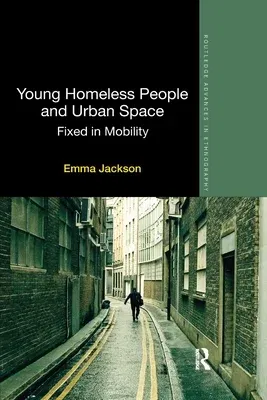Emma Jackson
(Author)Young Homeless People and Urban Space: Fixed in MobilityPaperback, 14 August 2020

Qty
1
Turbo
Ships in 2 - 3 days
Only 2 left
Free Delivery
Cash on Delivery
15 Days
Free Returns
Secure Checkout

Part of Series
Routledge Advances in Ethnography
Print Length
158 pages
Language
English
Publisher
Routledge
Date Published
14 Aug 2020
ISBN-10
0367598701
ISBN-13
9780367598709
Description
Product Details
Author:
Book Format:
Paperback
Country of Origin:
US
Date Published:
14 August 2020
Dimensions:
22.61 x
14.99 x
1.27 cm
Genre:
Urban
ISBN-10:
0367598701
ISBN-13:
9780367598709
Language:
English
Location:
Oxford
Pages:
158
Publisher:
Weight:
249.48 gm